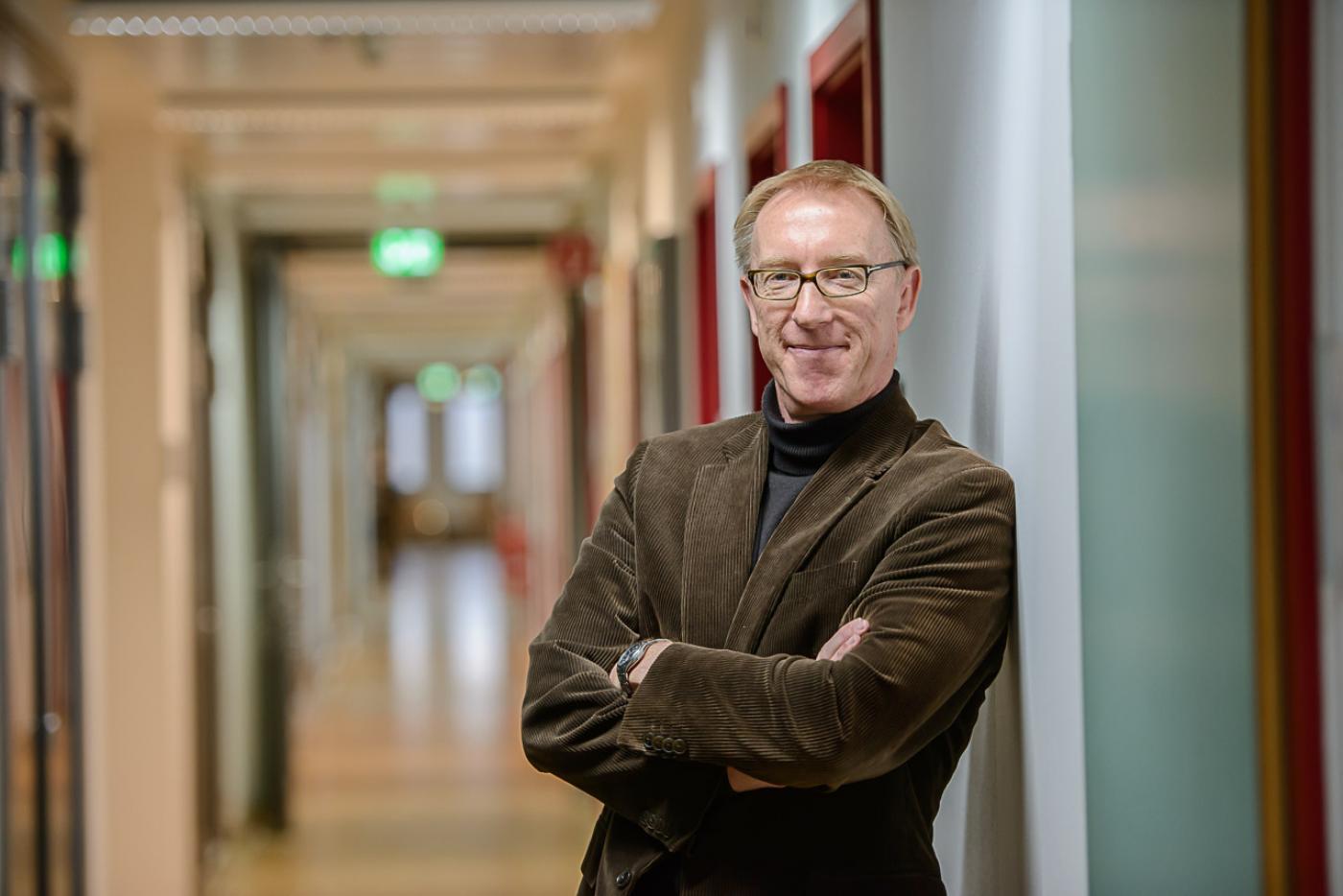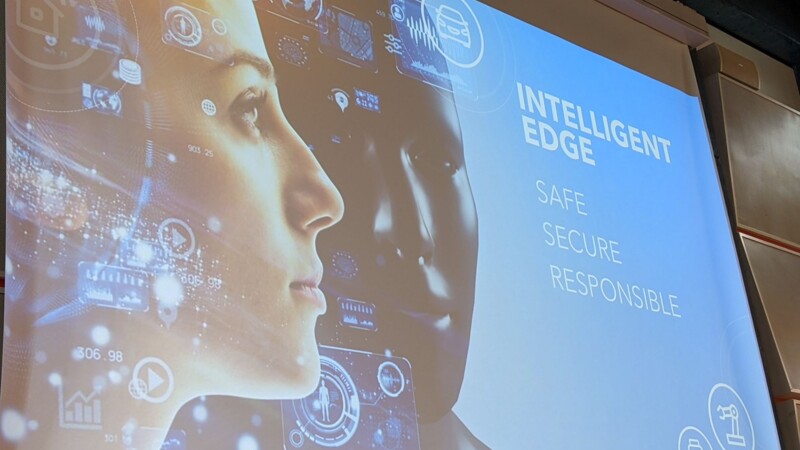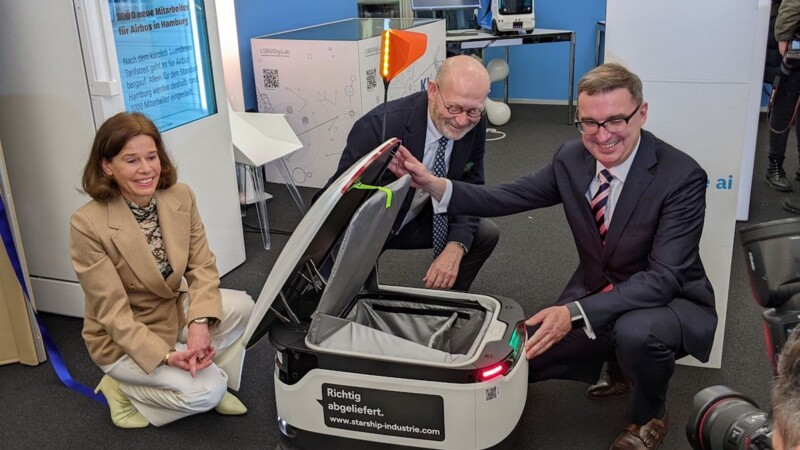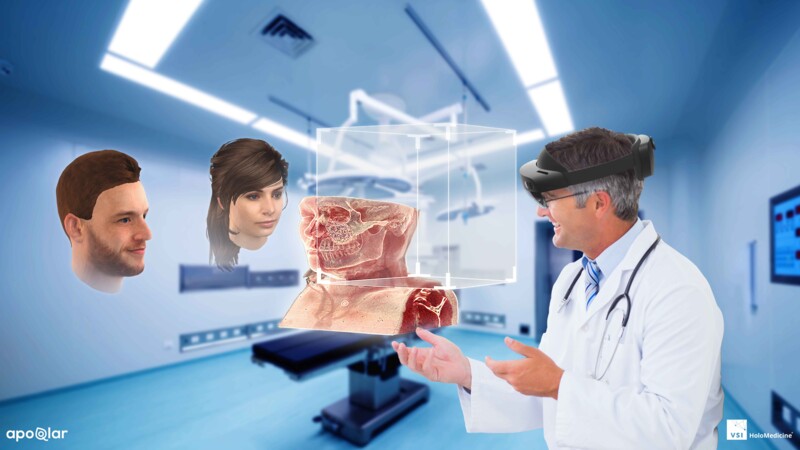Everything starts with the correct positioning of the patient for the X-ray. A "3D Time-Of-Flight Camera2" attached to the X-ray unit gauges the patient's exact position and the area to be examined e.g., an ankle. "We are working on a kind of traffic light system that tells the X-ray assistant when the patient's ankle is at the ideal angle. Then the AI immediately checks whether the photo meets all the requirements," said Martinetz, and gives the green light. Developing an AI-supported X-ray assistant is a joint project by the Radiology Department of the University Hospital Schleswig-Holstein in Lübeck, Image Information Systems Europe GmbH, Pattern Recognition Company GmbH and the Institute for Neuro- and Bioinformatics at the University of Lübeck.
Around 150 million X-ray images are taken every year in Germany. Naturally, the better the image, the more reliable the medical diagnosis. That saves time, costs and resources. Professor Thomas Martinetz, Director of the Institute for Neuro- and Bioinformatics at the University of Lübeck, said: "If the quality of the image is lacking, the patient has to be called in again to repeat the X-ray at the same expense for the hospital and the patient is exposed to yet another dose of radiation." Maritinetz and the radiologist Professor Jörg Barkhausen, are spokespersons for the Centre for Artificial Intelligence Lübeck's (ZKIL) Digital X-ray Assistant project to determine whether intelligent systems can achieve the desired image quality.
AI-based traffic light system for radiographers

Lübeck developing AI ecosystem for medicine
Founded in July 2019, ZKIL identifies AI solutions for medicine and conducts collaborative projects to establish them on the market. At present, the centre has 43 institutes and hospitals. Funding stems mainly from project-related third-party funds, which come to around EUR 30 million at present. More and more potential stakeholders are keen on joining ZKIL as Lübeck develops an AI ecosystem for health. The launch of the KI-Space for Intelligent Health Systems (KI-SIGS) was just one milestone in 2020. Companies, universities and research institutions from Hamburg, Bremen and Schleswig-Holstein bundle their AI expertise on the platform to grow its potential for developments in medicine e.g., in radiology.

Shared data pool for AI development
Market readiness and certifying the Digital X-ray Assistant as a medical device do not mark the conclusion of research project. "The idea is to move the application to the cloud. Doctors' practices would have access tp it without having to have corresponding computer systems themselves. Updates would ensure that the latest version is always available." And the more clinics and practices using the Digital X-ray Assistant, the more data is gathered which can in turn be used to train the AI. "However, the data must be anonymised to guarantee protection." Although AI holds huge for medicine, computer applications do not (yet) offer a universal cure, according to Martinetz.

AI lacks "understanding of world"
"Research has made quantum leaps in 'Deep Learning' and understanding neural networks, but despite these advances, AI is still stupid in many ways. It lacks the 'understanding of the world' that characterises human intelligence," said Martinetz. Scientists at the Institute for Neuro- and Bioinformatics, headed by Martinetz, are investigating how the brain works. Finding the answer is both time consuming and difficult. "The brain is the most complex system known to us. It is one of the great white spots on the scientific map," according to the institute's homepage. As long as the archetype is uncoded, artificial reproduction remains difficult. "Our applications may not yet be really intelligent, but they are very helpful," Martinetz stressed.
ys/pb
Sources and further information
More
Similar articles

Scenarios of future at fAIstival.hamburg 2022

Hamburg's Mindpeak using AI to diagnose cancer

